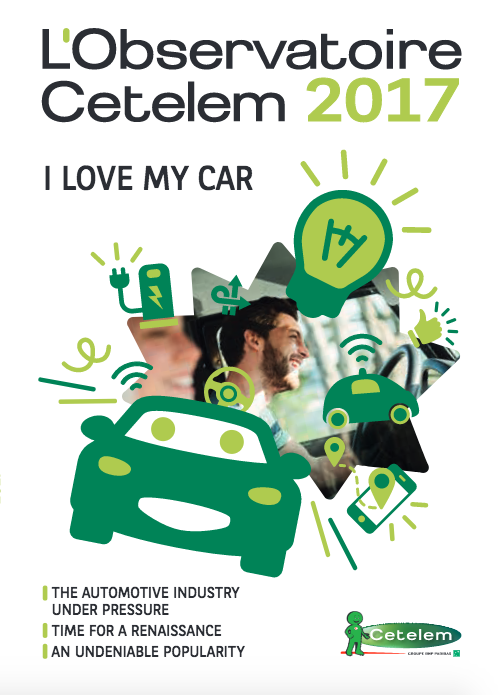Observatoire Cetelem
Automotive

Here you can find the Automotive editions. If you need to get access to statistics results or any further information, please contact us here.
2026

Cars - 5 ways to bounce back
In this new 2026 edition, while we note a worrying situation, we also identify five levers that could allow the automotive sector to bounce back to health.
This is an obligation, given the high economic and social stakes involved.

2025
Cars: an eternal youth?
At L’Observatoire Cetelem, we regularly take the pulse of industries, products, innovations and generations of consumers, to check whether their hearts are beating as strongly as ever. In 2011, we turned our focus on the under- 30s, before they were even referred to as millennials. At the time, they were known as Generation Y. Some 15 years later, we turn our attention back to this age group, today’s Gen Z, to examine their relationship with cars. Our goal is to determine whether this relationship has evolved and, if so, how. This at a time when electric vehicles are emerging as the future of the industry, not to say its salvation.

2024
Motorists are in a fog
For years, almost since its very inception, the automotive sector developed with little or nothing to hinder its growth and success. Any adversity, such as the oil crisis of the early 1970s, was overcome relatively smoothly. The succession of innovations that saw automobiles evolve from the Ford Model T to the SUV did not, however, reduced their cost, making them the only “mass-market” product to distinguish themselves by becoming ever more expensive. Even so, price remained the main criterion that swayed the purchasing decisions of consumers.
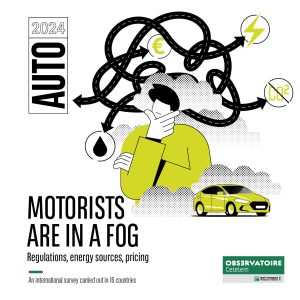
2023
Cars : Whatever It Takes?
Since its creation, L’Observatoire Cetelem has always kept its finger on the pulse of developments in the automotive world, while also endeavouring to predict where the industry is headed. In a year that has seen the world hit by a succession of economic and geopolitical crises – after two years dominated by the global pandemic – it is clear that this pulse is no longer beating particularly strongly.
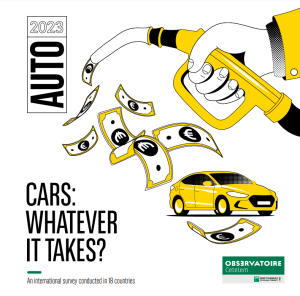
2022
The Bold Trajectory of the SUV
The automotive sector is in deep crisis, a crisis that has affected the entire industry, from carmakers to component manufacturers, not to mention distributors, themselves an important source of employment. Initially triggered by a pandemic that has brought factories to a halt and closed dealerships, the current crisis revolves around electronic component supply chain problems. Having previously run into difficulties due to oversupply, the automotive industry is now faced with an unprecedented crisis brought about by vehicle shortages! This has resulted in lengthy delivery times, lower spec vehicles being supplied and short-time working in plants.

2021
Cars: an impossible divorce?
Having long been the symbol of economic development, social progress and success in general, cars have gradually become something of a black sheep. As black as the emissions they are accused of scattering around our cities, at a time when development cannot be other than sustainable and eco-friendly. And as if that were not enough, 2020 arrived. An equally black year that saw the market collapse. A year that highlighted the turbulence that buffets the automotive industry from all sides and which has now rocked it to its foundations.

2020
The Automotive Divide
If there is one area where love seems eternal, it is the automotive sector. Economic crises, mistrust, constraints, changing lifestyles and behaviours, nothing seems able to alter the role and uses of this century-old star product, and it remains in rude health.
But the love motorists have for their vehicle is far from blind, and their feelings are rooted in reason.
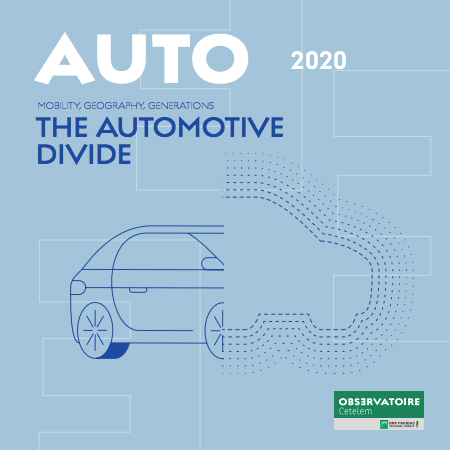
2019
The mystery of the electric car
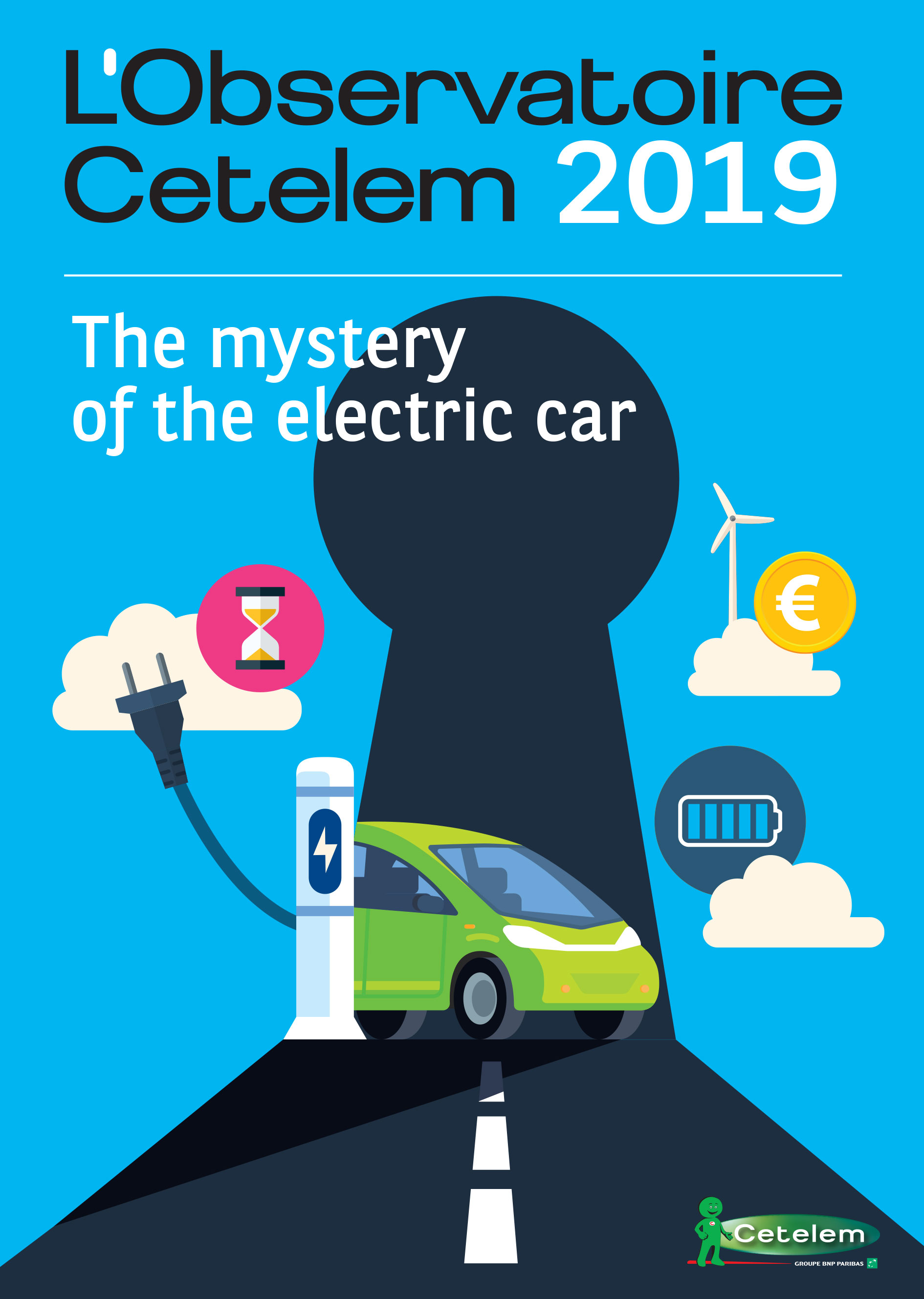
2018
Loyalty, warning, fragile
What does automobile loyalty mean today? How has it developed in the minds of consumers, and in reality? A make of car, a model, or a dealer, what or who are we being loyal to? What are the criteria and
reasons put forward for being a loyal customer, or not, for each country and clientele?
In a world of constant flux, hyper-choice, hard sell and frantic innovation, how can we satisfy and hold onto the customers we only see every three or four years in the best of cases? What actions can be put in
place? What leverage is there for makes and distributors?
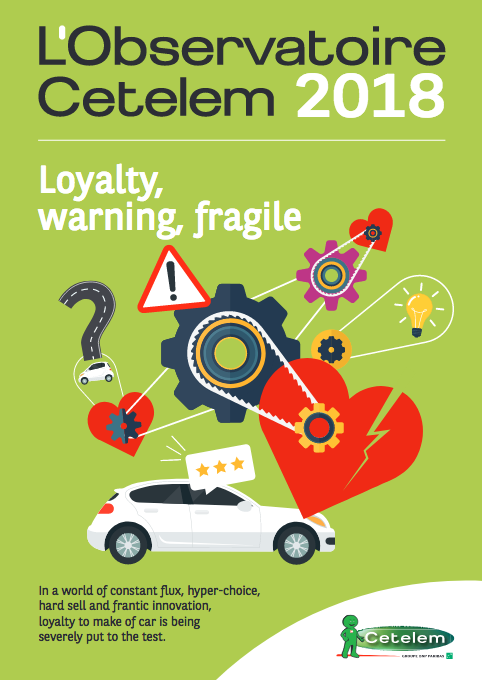
2017
I love my car
It is hard to find a product that generates as much passion as the humble automobile. Negative passion in those who find cars dangerous, unnecessary, environmentally unsound, expensive and obsolete. Positive passion in those who see them as beautiful, fascinating, essential, practical and irreplaceable…
